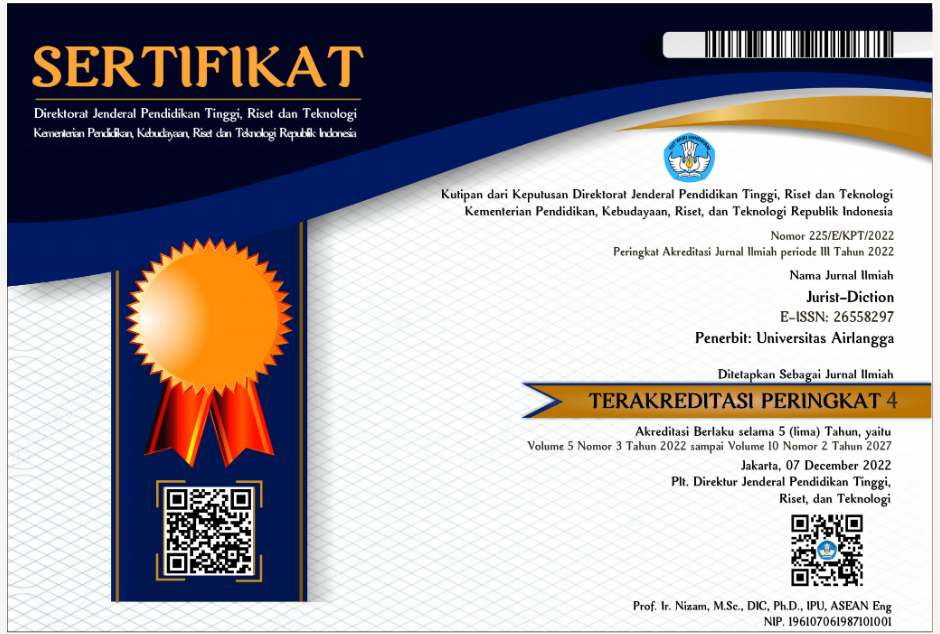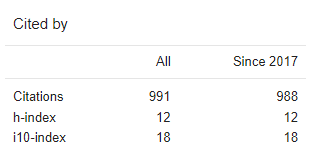Balancing Formalism and Justice An Analysis of Indonesian Mahkamah Agung’s Obscuur Libel Case Law in Light of ECtHR Standards
Downloads
Legal formalism plays a crucial role in ensuring consistency and predictability in judicial decision-making. However, excessive formalism can obstruct access to justice by prioritising procedural technicalities over substantive justice. This paper examines the Indonesian Supreme Court’s approach to Obscuur Libel cases where lawsuits may be dismissed due to failure to meet formal requirements. By analysing these decisions in light of the European Court of Human Rights (ECtHR) standards, this study explores the tension between procedural rigour and substantive justice. The paper assesses whether Indonesian case law aligns with ECtHR principles on fair trial rights and access to justice and identifies instances where excessive formalism may hinder judicial fairness. It further proposes guidelines to balance legal certainty with substantive justice, ensuring procedural fairness without unduly restricting legal remedies. By offering suggestions for enhancing procedural justice in Indonesia's legal system, this study adds to the larger conversation on judicial formalism and access to justice.
Books
Andi Hamzah, Hukum Acara Pidana Indonesia (Ed. 2, Sinar Grafika, 2008).
Fernhout f, Formal Rules in Civil Procedure and Access to Justice: Striking a Balance between Excessive Formalism and ‘Anything Goes’, Civil Justice between Efficiency and Quality: From Ius Commune to the CPEJ (Intersentia, 2008).
Shapiro M, Courts: A Comparative and Political Analysis (University of Chicago Press 1986).
Teleki C, Applicability of Article 6(1) ECHR, Due Process and Fair Trial in EU Competition Law: The Impact of Article 6 of the European Convention on Human Rights (Brill 2021).
Journals
Aneta Łazarska, ‘Prohibition of Excessive Formalism and Judicial Practice: Comments Based on Civil Case Law of Polish Courts in the Context of Article 6 ECHR’ (2020) 4 Ius Novum.
Bryan Bryan & Ade Adhari, ‘Analisis Keadilan dalam Putusan Lepas Akibat Dakwaan Obscuur Libel’ (2023) 8 Syntax Literate: Jurnal Ilmiah Indonesia 8.
Charles P. Sabatino, ‘Access to Justice: The People’s Principle’ (2019) 43(4) Generations: Journal of the American Society on Aging 6.
Colin Crawford, Daniel Bonilla Maldonado, ‘Introduction: Access to Justice: Theory and Practice from a Comparative Perspective’ (2020) 27(1) Indiana Journal of Global Legal Studies 1.
Erlina et al., ‘Pertimbangan Hakim dalam Menjatuhkan Putusan Obscuur Libel terhadap Gugatan Perbuatan Melawan Hukum dalam Proses Jual Beli Tanah (Studi Putusan Nomor: 42/Pdt.G/2023/PN.TJK)’ (2024) 4(1) Innovatice: Journal of Social Science Research 11064.
Frederick Schauer, ‘Formalism’ (1998) 97 Yale Law Journal 509.
Klara Helene S, Christian U. Becker, Stefan Baumgärtner, ‘A Conceptual Structure of Justice – Providing a Tool to Analyse Conceptions of Justice’ (2016) 19(5) Ethical Theory and Moral Practice 1187.
Oksana Scherbaniuk & Tetiana Bohdanevych, ‘The Doctrine of Excessive Formalism in the Legal Theory and Practice of the European Court of Human Rights’ (2024) Frontiers in Law 3: 15-21.
Shalev Gad Roisman, ‘The Limits of Formalism in the Separation of Powers’ (2024) 16(1) Journal of Legal Analysis 178.
William Lucy, ‘Access to Justice and the Rule of Law’ (2020) 40(2) Oxford Journal of Legal Studies 377.
Case Laws
• EctHR
Běleš and Others v. the Czech Republic (2002) ECHR No. 47273/99.
Golder v. United Kingdom (1975) ECHR No. 4451/70.
Garcia Manibardo v. Spain (2000) ECHR No. 38695/97.
Kadlec v. Czech Republic (2004) ECHR No. 49478/99.
Pérez de Rada Cavanilles v. Spain (1998) ECHR No. 28090/95.
PECA v. Greece (No.2) (2010) ECHR No. 33067/08.
Savvides v. Cyprus (2021) ECHR No. 14195/15.
Sotiris and Nikos Koutras Attee v. Greece (2000) ECHR No. 39442/98.
Succi and Others v. Italy (2022) ECHR No. 55064/11.
Zvolský and Zvolská v. the Czech Republic (2002) ECHR No. 46129/99
• Indonesian Supreme Court
PT. Pertamina v. Ir. Baihaki Hakim, No. 2225 K/Pdt/2006, Supreme Court, 16 May 2007.
H. Jamalus v. Kamar, Despilna and Others, No. 2452 K/Pdt/2009, Supreme Court, 28 October 2010.
Regulations
Law Number 8 Year 1981 concerning Criminal Code Procedure Code (KUHAP) (Indonesian State Gazette Year 1981 Number 76, Additional of Indonesian State Gazette Number 3209).
Law Number 1 of 2023 concerning Criminal Code (KUHP) (Indonesian State Gazette Year 2023 Number 1).
Copyright (c) 2025 Axcelia Deandra Surya

This work is licensed under a Creative Commons Attribution 4.0 International License.
Jurist-Diction (P-ISSN 2721-8392, E-ISSN 2655-8297), published by Universitas Airlangga, is licensed under the Creative Commons Attribution 4.0 International License (CC BY 4.0).
This license permits users to:
- Share – copy and redistribute the material in any medium or format;
- Adapt – remix, transform, and build upon the material for any purpose, including commercial use.
These freedoms are granted under the following conditions:
Attribution – You must provide appropriate credit, include a link to the license, and indicate if any changes were made. This may be done in any reasonable manner, but not in a way that suggests the licensor endorses you or your use.
No additional restrictions – You may not apply legal terms or technological measures that restrict others from exercising the rights granted under the license.
Note: As of Volume 5, No. 1 (2022), Jurist-Diction has adopted the Creative Commons Attribution 4.0 International License (CC BY 4.0), replacing its previous license (CC BY-NC-SA).


















